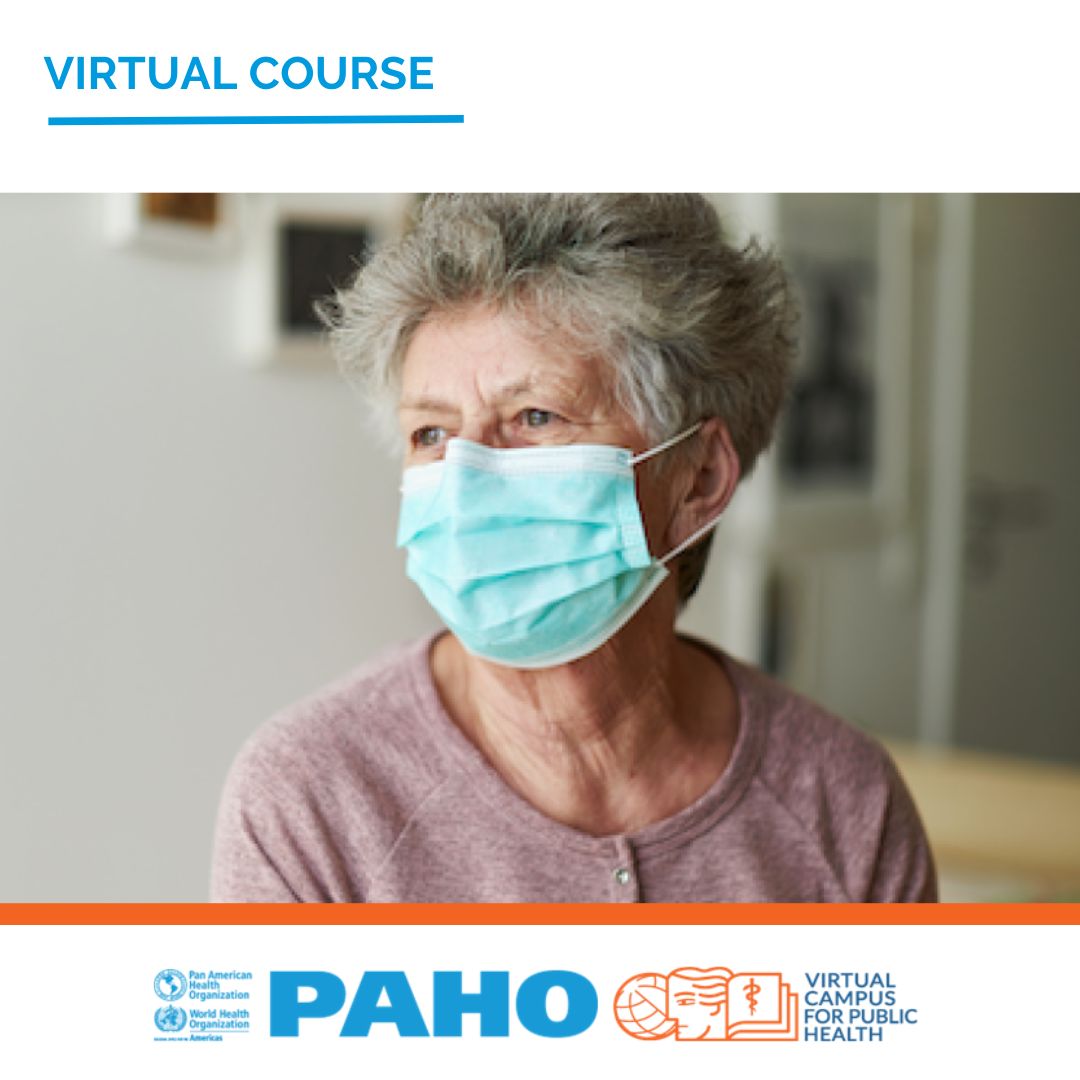Development of Competences in Health Care for Older Persons: ACAPEM ‒ Basic Level - English (Extd 2023)

The International Accreditation of Competences in Health Care for Older Persons (ACAPEM) is a network training strategy, aimed at health professionals with an emphasis on the development of competencies, that the Pan American Health Organization (PAHO/WHO), along with other Associations and Institutions promotes in the Region of the Americas, to achieve its suitability in the care of the elderly.
It is divided into three levels, from lowest to highest complexity: ACAPEM-Basic, ACAPEM-Intermediate and ACAPEM-Advanced.
This is the first level (ACAPEM-Basic). The other two levels will be available in the future.
Introduction
Population aging is a worldwide phenomenon, which occurs rapidly in Latin American and Caribbean countries. Older adults have unique characteristics associated with their care, which demand a response from health systems. Training of health professionals regarding the aging of population and older adults’ needs is crucial to develop necessary skills to older adults’ adequate care in the Region of the Americas, and ultimately, as a result, strengthen health systems.
Objectives
- Improve the perceptions, attitudes, and abilities of health professionals who provide care to older people as part of a primary care-based health system.
- Increase participants’ awareness of the need to acquire new skills associated with the challenge that comes with aging and, in doing so, promote interest in obtaining higher-level accreditation (intermediate and advanced).
- Prioritize function-based assessments in clinical practice.
- Recognize basic clinical decision-making criteria and identify the formal and informal actions and resources needed to optimize care.
Target audience and certification
Target audience of this course is health care professionals working in the primary care. After obtaining certification, the participant will be a health professional who has been educated about the challenges that aging poses to health services, is aware of their own level of competency in this area, and is committed to the opportunity that this training represents for their professional development.
Participants will have improved their perceptions, attitudes, and abilities to maintain a comprehensive primary care approach to this “new and different” type of patient.
They will be in a position to make better decisions for people-centered health care, focusing on health promotion, disease prevention, and preserving the independence and autonomy of older adults, with a life-course perspective.
Duration and Modality
The basic accreditation program (ACAPEM-B) will consist of four virtual courses in a self-learning environment, addressing the four skills that the participant should achieve.
The course is open and available in the VCPH. As it is a self-learning course, participants can regulate their times and moments of dedication. When including the estimated time to review the course contents and evaluations, the course is assigned a total of 40 hours.
The actual rate of learning and time it takes to complete each course is specific to each participant.
ACAPEM-B Courses
The virtual self-learning courses in ACAPEM-B (Basic Level) correspond to the four (4) skills needed to achieve the competencies covered by this Accreditation.
Course BC-1: Changes in the care of older people.
Course BC-2: Comprehensive health care assessment of older people.
Course BC-3: Criteria for health care interventions in older people.
Course BC-4: Optimization of care for older patients.
The courses are structured in thematic units that address the objectives of each course, in which the learning activities, educational resources, and evaluations are organized.
BC-1: Changes in the care of older people
Unit 1.1- Transitioning clinical practice for an aging population
Unit 1.2- New paradigm in the health care approach
Unit 1.3- Health promotion for older people
Unit 1.4- Preventive health care for older people
BC-2: Comprehensive health care assessment of older people
Unit 2.1- Health of older people
Unit 2.2- Disease presentation in geriatric patients
Unit 2.3- Comprehensive geriatric assessment
Unit 2.4- Key evaluations for the comprehensive geriatric assessment
BC-3: Criteria for health care interventions in older people
Unit 3.1- Health from an older person’s perspective
Unit 3.2- Older person-centered care
Unit 3.3- Designing nonpharmacological interventions for older patients
Unit 3.4- Pharmacological treatment of older patients
BC-4: Optimization of care for older patients
Unit 4.1- Continuity in the health care of older people
Unit 4.2- Self-care
Unit 4.3- Family and caregivers involved in the care of older people
Unit 4.4- Working with the community and other sectors
